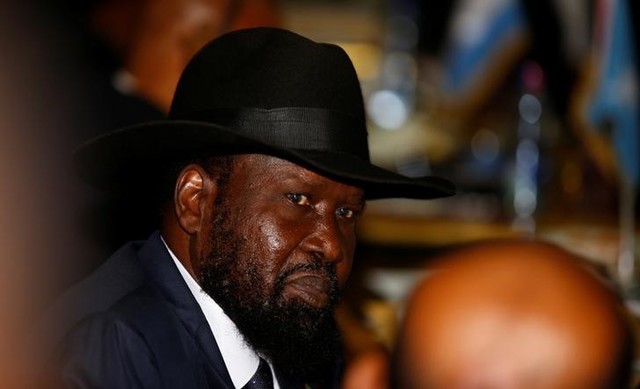Head of South Sudan’s military courts resigns, rebukes government


By Reuters
The head of South Sudan’s military courts has resigned, saying high-level interference made it impossible to discipline soldiers accused of rape and murder amid the nation’s civil war, according to a letter seen by Reuters on Saturday.
The resignation of Col. Khalid Ono Loki is the third high-level departure in a week. A highly respected general stood down seven days ago, citing ethnic favouritism in the military and rampant human rights abuses. On Friday, the minister of labour defected to the rebels.
Oil-rich South Sudan has been mired in civil war since 2013, when President Salva Kiir, an ethnic Dinka, fired his deputy Riek Machar, an ethnic Nuer.
Since then, fighting has increasingly fractured the world’s youngest country along ethnic lines, leading the U.N. to warn that the violence was setting the stage for genocide.
In a letter addressed to the chief of army staff, Loki said soldiers were committing crimes without fear of punishment, particularly officers who were Dinka, the same tribe as the president and chief of army staff.
“In your relentless endeavours to protect your own ethnicity, and founded on no single law, you always freeze and/or abolish court issuance and rulings even of murder, rape and theft cases,” he wrote.
“You have ordered arrests of civilians in military jails exterior of proper legal channels … I can no longer continue with such a corrupt, ethicised and unethical institution.”
Loki’s resignation buttresses allegations by international rights groups that the government permits soldiers to gang-rape and murder civilians with impunity. The U.N. has documented hundreds of accusations of rape involving soldiers in the capital alone.
Rebels have also been accused of human rights abuses, although fewer cases have been documented.
Military spokesman Brigadier General Lul Ruai Koang said Loki had resigned last year but that it had not been publicised.
“Their defection won’t have any negative bearing on the national army,” he said. He did not comment on reports of human rights abuses by the military.
The government has previously said soldiers who commit abuses are prosecuted. Officials have not provided any figures or details on such cases.
The rash of resignations will isolate Kiir’s government further within the international community and strengthen calls for a regional protection force to patrol the capital and for the military to withdraw.
There are 15,000 U.N. peacekeepers in South Sudan, but they have been criticised for not intervening when human rights abuses are being committed.
The conflict has forced more than 3 million of the nation’s 11 million citizens to leave their homes, creating pockets of severe malnutrition. Last year inflation reached over 800 percent.